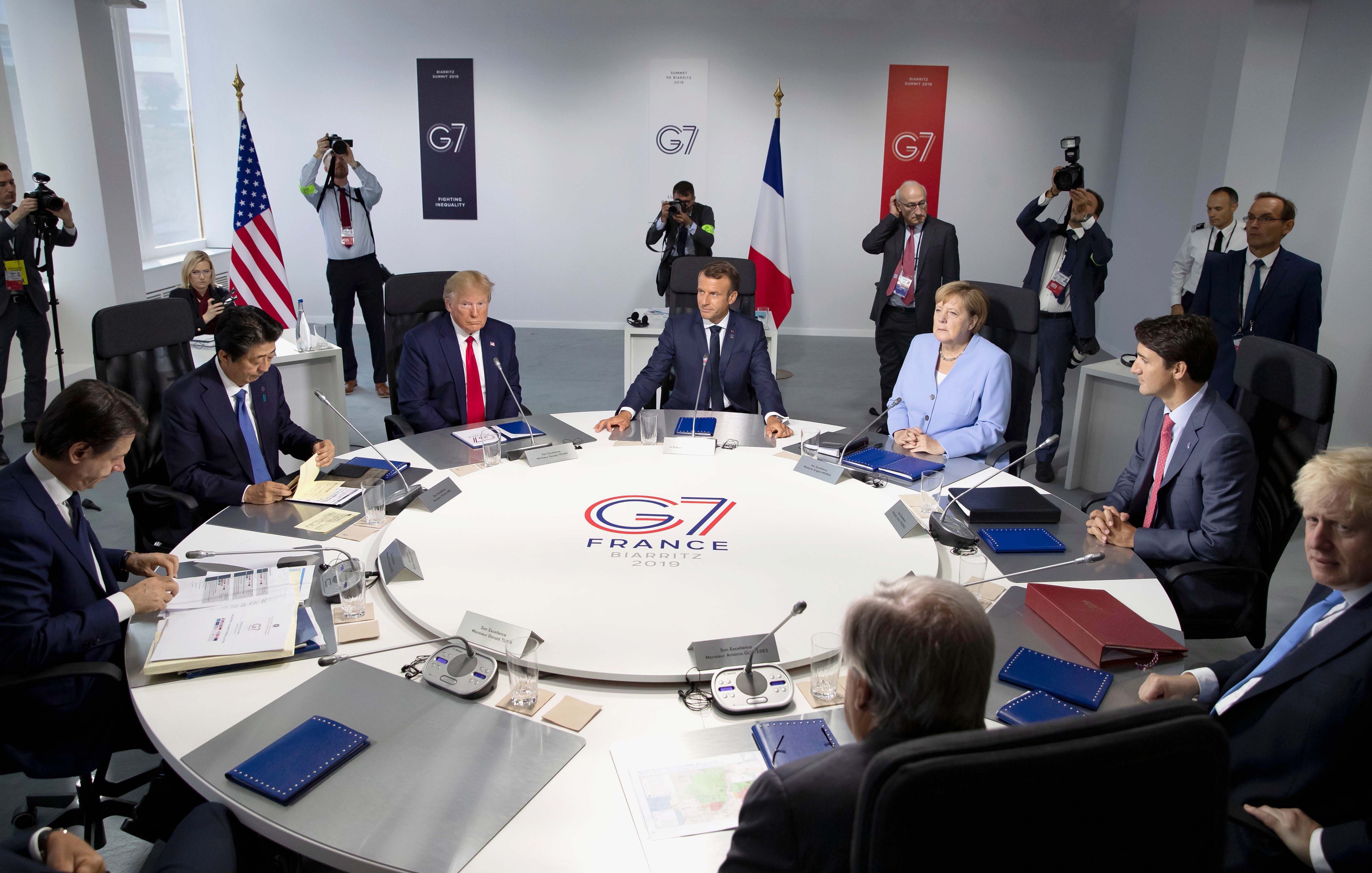BIARRITZ, France (Reuters) – Here are highlights of the G7 leaders’ closing remarks at a summit in Biarritz, France:
BRITISH PRIME MINISTER BORIS JOHNSON
On Brexit: “Well I do think that the EU does tend to come to an agreement right at the end.”
“Clearly for us, the walking away as it were, would come on October 31 when we would take steps to come out on the terms for which we will have by then made absolutely colossal and extensive and fantastic preparations.”
On Iran: “Iran should never under circumstances be allowed to get a nuclear weapon.”
“There is clearly an opportunity now for Iran to come back into compliance with the nuclear deal… and to resume dialogue, as well as to cease its disruptive behavior in the region.”
CANADIAN PRIME MINISTER JUSTIN TRUDEAU
On Russia: “The G7 is a gathering of like-minded nations that have committed to moving forward in a positive way for the global economy and Russia’s actions both in Ukraine and in other ways have clearly made it not eligible for partnership in this group of like-minded countries.”
JAPANESE PRIME MINISTER SHINZO ABE
On U.S.-China trade talks: “I hope there will be good results from U.S.-China trade negotiations that will help stabilize the global economy.”
“We will guide economic policy with an eye on the impact (the U.S.-China trade tensions) could have on Japan’s economy.”
FRENCH PRESIDENT EMMANUEL MACRON:
On Iran: “Two things are very important for us: Iran must never have nuclear weapons, and this situation should never threaten regional stability.”
“Nothing is set yet and things are still fragile, but technical discussions have started with some real progress.”
“What I have said to (Iranian Foreign Minister Mohammad Javad) Zarif and what I have said by telephone to President Rouhani is that if he accepts a meeting with President Trump, I am convinced that an agreement can be found.”
“What I hope is that in coming weeks, based on these talks, we can manage to make happen a summit between President Rouhani and President Trump.
U.S. PRESIDENT DONALD TRUMP:
On China: “I think they want to make a deal very badly. I think that was elevated last night.”
“China has taken a very large hit in the last few months. Three million jobs. It will soon be much more than 3 million jobs. Their chain is breaking up like no one has seen before. Once that happens it is very hard to put it back together. I think they very much want to make a deal.”
“The longer they wait the harder it will be to put it back, if it can be put back at all.”
On Iran: “They have to be good players, if you understand what I mean. They can’t do what they were saying they were going to do, because if they do that, they will be met with really very violent force. So I think they are going to be good.”
On climate change: “We are the number one energy producer in the world. It is tremendous wealth … I am not going to lose that wealth on dreams, on windmills, which frankly are not working that well.”
GERMAN CHANCELLOR ANGELA MERKEL
On Iran: “What unites us, and that is a big step forward, is that we not only don’t want Iran to have nuclear weapons, but also that we (want to) find the solution to that via political means.”
On Brexit: “Europe is very much unified in its representation here … we will have some work to do in the autumn on Britain’s exit (from the EU). So we face some busy weeks ahead.”
On talks with Trump:
“I renewed my proposal that American firms – small and mid-sized firms – could come to Germany for a conference so that we can better present the German market to the Americans … that (idea) met with approval.”
‘Courtesy Reuters’


